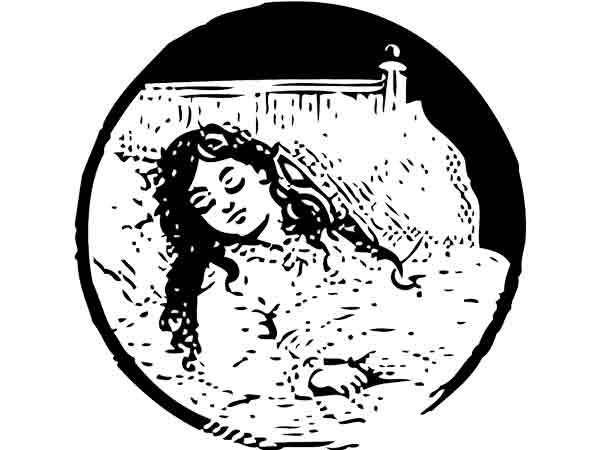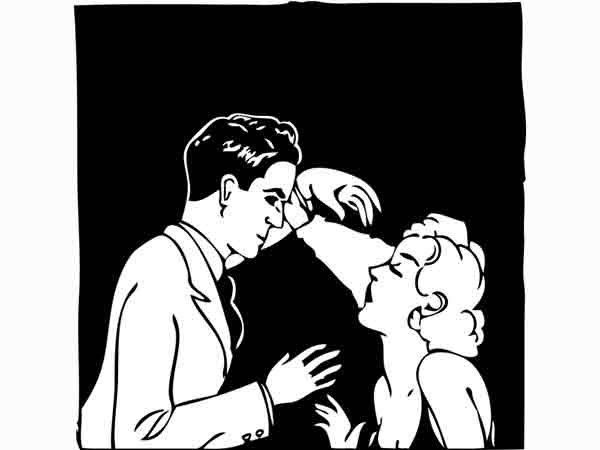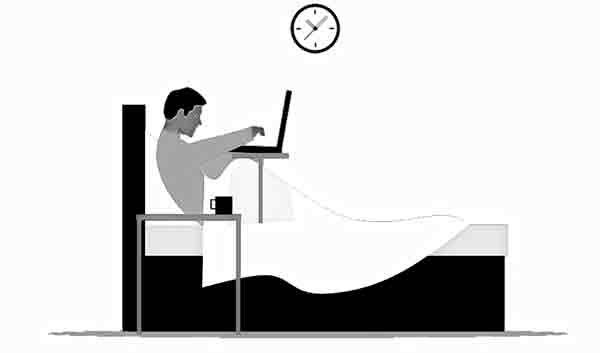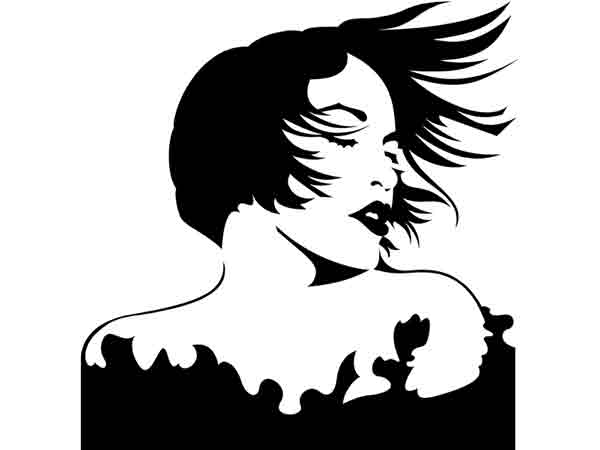What is dream analysis psychology?: Do you ever wake up from a dream, with an urge to seek its meaning? It is a pretty common and natural behavior to inquire about it. Our ancestors have been telling us since ages that dreaming about your own death signifies you will live longer and the list for these interpretations by our grannies is never-ending.
If you are intrigued about exploring deeper into the meanings of your dreams, then dream analysis psychology is exactly what you need to study.

Inspiring your journey, one story at a time. #LifeFalcon.
Similarly, you can also check out our post on What it means when you dream about someone? as well as dreams, where you learn to be aware that you are in a dream. (Lucid dreaming)
Table of Content
What is Dream Analysis Psychology?

It is a process to search for the meanings behind a certain dream. This idea is similar to that of dream interpretation since both these terms aim to evaluate the content behind it.
Some people believe that dreams are just a result of REM sleep. However, others believe that dreams are significant and their meanings and interpretations can speak a lot about individuals and their psyche.
We have all get scared when we fall asleep thinking about something and that exact scenario or thing becomes a part of our dream. It happens to almost all of us.
Our subconscious thoughts become a part of our dream more often than we think they do. Our dreams are a representation of our conception.
They can represent our internal impression regarding people, things, situations, or they can represent our perspective on several things. Interpreting and analyzing dreams can be beneficial to probe a person’s conception.
Dream analysis psychology attaches meanings to dreams in terms of subconscious thoughts and feelings as well!
So now you know why you were dreaming about chicken nuggets last night.
History of Dream Analysis Psychology:
Dreams have existed since forever along with several interpretations. Years back, when modernity was not a thing, interpretations and meanings attached with dreams were rather spiritual and religious.
However, as modernity approaches, the meanings and interpretations attached to dreams became rational and logical. Psychologists provided reasons for their interpretations.
Therefore this process of analyzing dreams has existed for a long time but the interpretations have evolved over time.
Dreaming psychology is also a part of psychoanalysis.
Sigmund Freud is considered as the father of psychoanalysis therefore dream analysis psychology is highly influenced by Freud’s work.
Psychoanalysis is a theory that explains human behavior. It is also a form of therapy used to treat certain mental disorders.
Ever since Freud’s theory of dream interpretations, many other psychologists and psychoanalysts have used this process in multiple ways with various explanations and in different researches.
Dream understanding and Mental Illnesses:

Another concept behind getting to know your dreams better is to help people battle their inner thoughts and the problems they are facing. The tug of war that takes place in your brain, between your thoughts, has a huge effect on your dreams.
The method is used in cognitive techniques, like Image Rehearsal Therapy to address mental health issues.
In Image Rehearsal Therapy, the individual is required to note down a nightmare and then replace it with a positive dream. This exercise aids them to interpret their nightmares positively. It is also believed that IRT is effective in treating nightmares.
Is it Effective?
Research shows that it is effective in treating mental illnesses since dreams are an integral part of our conceptions and represent our subconscious mind.
However, it is only effective if it used with other types of therapies to treat mental illnesses. If used alone, it will not be going to be efficacious.
Dream Psychology and the Human Mind:
It is believed by a few researchers that our dreams are a conversation between our subconscious mind and our conscious mind.
The exact reason behind why humans dream is still unknown. However, it is confirmed that most dreams occur during the REM (Rapid Eye Movement) period of our sleep.
Moreover, dreaming is also a part of processing in mental disorders like PTSD.
Usually, when a person goes through a traumatic event or incident, they get dreams and nightmares which connect to that specific tragedy.
This is because dreams are a part of our mental processing. We get dreams during PTSD since our mind is still trying to accept the trauma. Acceptance and processing are often seen through an individual’s dreams.
Dreams also help individuals and their minds to find some sort of resolution and validation.
How does the dream psychology work?

Dream analysis sessions can be taken with the help of a professional therapist or psychoanalyst or you can do it on your own too. We all have tried it at some point in our lives.
Sometimes by wondering why did we dream of a snake till google-ing our magnificent dream in Willy Wonka’s factory! There is no set of rules for personal dream analysis.
It is recommended to get it done through a medical professional since it can tell a lot about our internal conceptions. Thus getting it done from a professional will provide you a deeper evaluation.
There are several techniques that are used to aid this process, as a therapeutic method and tool. We have mentioned some of the techniques below:
-
Dream Journal:
The most commonly used technique is to have a dream journal.
A lot of us, do not remember the dreams we view and it is totally normal. However, when you do, immediately note it down for the process of dream understanding.
Recording your dreams will make it easier for the analysis to happen since you will not forget it later at the time of therapy.
-
Association of Feelings with the Dream:
The next technique is to note and remember the feelings you had throughout the dream and after you woke up. You need to assess if you were feeling happy, angry or sad etc.
This is important since the feelings associated with dreams play a significant part in the evaluation.
You also need to analyze how you were feeling after waking up. Your mood and emotions after the dream are extremely crucial too.
Once you start finding the meaning behind your dreams, you will start figuring out your emotions and feelings during the dream better. With time, you will automatically recall your emotions.
At this point, you can start questioning yourself regarding the hidden meaning behind your dreams. All the factors need to be considered for the evaluation.
Do not try evaluating the meanings on your own because it might not be accurate. A professional will help you in the best way!
The entire idea of this psychology is to understand the meanings and interpretations of your dreams and to identify their correlation with your inner thoughts and perceptions.
Using dream dictionaries in this process will rule this out.
The therapist will also provide more information and knowledge regarding themes of the dream and how they can be significant to the individual.
Effect of Dream Analysis Psychology on an Individual

Yes, it can affect individuals in different ways, just like any other psychotherapy and self psychology can.
Firstly, it will help the individual feel more connected to their unconscious mind. Dreams are a result of our unconsciousness, hence when we know their interpretations, we will be better connected to that certain part of our brain.
Moreover, it will enhance the mental well-being of an individual. Once the person knows their subconscious thoughts, they can use them to process and function better.
Sigmund Freud and dreams:
Freud; also known as the father of psychoanalysis, is one of the main originators of dream analysis.
He believed that dreams are a tool, to reach out to the unconscious mind.
According to Freud, humans stored a lot of information in this part of the brain and it could only be reached out through whatever a person dreamed about.
Carl Jung and dream analysis psychology:
Carl Jung has an extremely similar theory to Freud’s. He also believes that our dreams are a part of our unconscious mind.
However, there is one aspect that differentiates Freud and Jung’s theory. Jung believes that the best analyst of a dream is the dreamer himself rather than a therapist.
Freud’s idea contradicted since he believed that a therapist is an expert when it comes to dreaming analysis psychology.
Jung believed that dreams are a source of communication between an individual and its psyche.
He also believed that dreams are an extremely significant part of an individual’s growth. This process is called individualization and he perceived dreams as the main component of it.
Then we have Calvin S. Hall
Hall believed that dreams are a cognitive process. According to Hall, dreams are a sequel of thoughts and feelings that occur to an individual during sleep.
These thoughts can also be a visual representation of the individual’s perception.
Hall also developed a theory of dream symbolization. This received mixed views since some psychoanalysts and researchers believe that symbols and meanings of dreams cannot be generalized.
If someone dreams of a breakup with their significant other, it can be a result of multiple things. For some, it can be a fear of heartbreak whereas for some it can be a result of a recent fight.
Broadly, Hall also believes that dreams are a representation of an individual’s conception, thoughts, fear, self, and much more.
Benefits of this psychology analytics:
- Through dream analytics, individuals can understand their subconscious and unconscious minds better.
- Once individuals understand these parts of their minds, they can use it to improve their mental well-being. It is helpful in handling stress.
- This psychology also helps individuals reveal and explore themselves. Doing so through this therapeutic process can affect their intellectual and emotional growth optimistically.
Limitations of dream analysis psychology:
- Dreams understanding cannot be generalized to larger populations. This is because the research conducted is mostly case studies. Moreover, all individuals have different conceptions and thoughts hence a generalized analysis cannot be generated.
- There is always a risk of false evaluation. This can be dangerous since it can form false memory in individuals if interpreted by professional therapists.
- It can also bring about several “what ifs”. These can affect the individual’s mood and functioning since they will be creating a big deal out of their dreams. .
To Conclude:
Conclusively, dream analysis is not a modern process at all. It has been here for years but has evolved largely with time.
The generalized symbols and themes have changed over time. Back then it was majorly spirituality and superstitions, now it is highly rational.
On the whole, is a great therapeutic tool for individuals to understand themselves and their unconscious brain.
But, it does come with its drawbacks.
So, is it even important to dive deeper into the meanings of what we dream? Or is it okay to let them be, what they are; a fantasy! You decide.



















